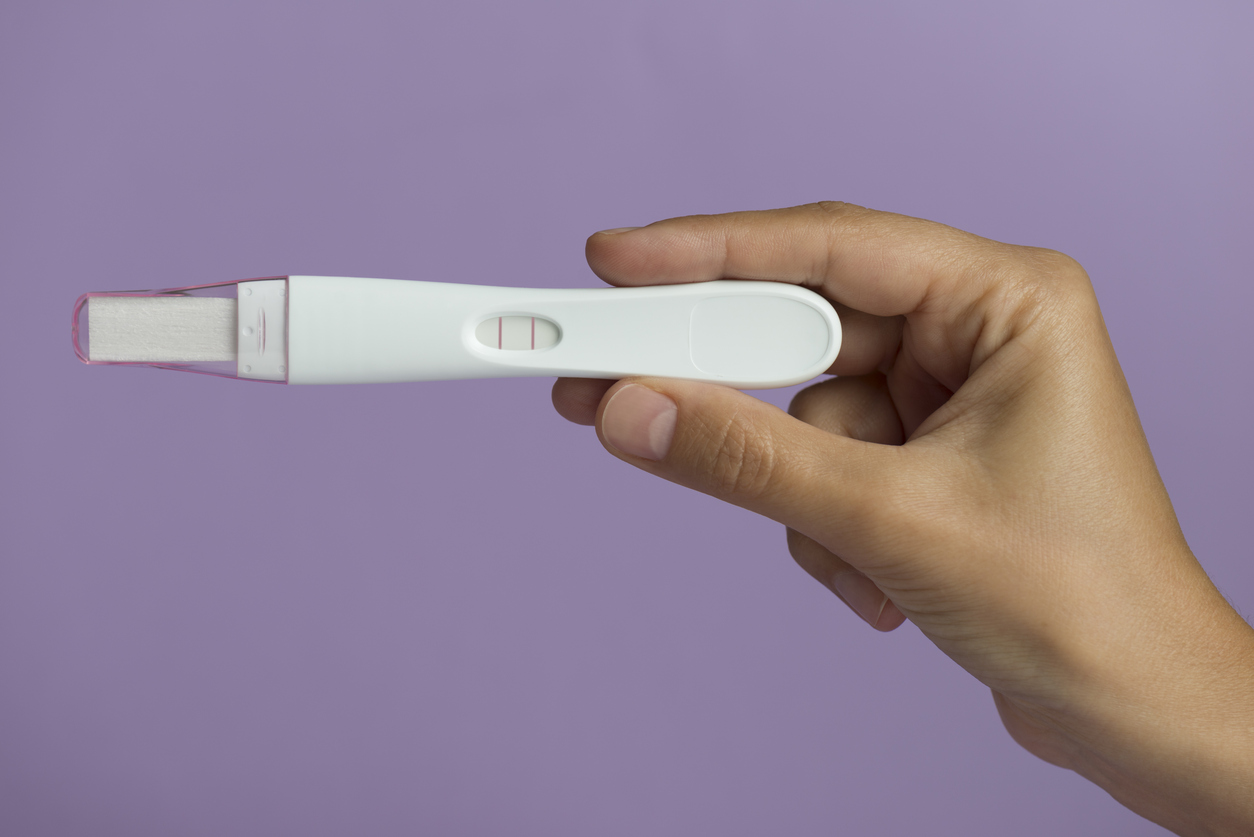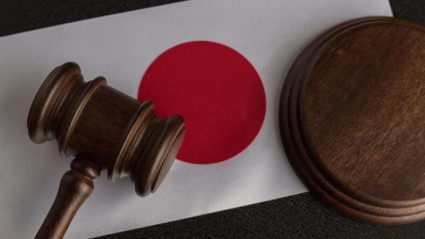While many laws have been created and updated to improve the lives of women in Japan, others have not.
Here, we highlight four Japanese laws we would like to see amended for women so that Japan can become a nation where people of all genders have the same rights on paper and in practice.
Japan often comes under fire on the world stage when discussing women’s rights. Consider these recent reports:
- Japan ranked 118th among 146 countries in the 2024 World Economic Forum Global Gender Gap Report.
- The 2023 Human Rights Watch report on Japan points out the continuing lack of non-discrimination laws regarding sexual orientation and gender identity as well as the limitations of the Equal Employment Opportunity Law.
- Out of OECD countries in 2023, Japan ranks among the worst for the gender wage gap at about 22%.
While there are laws benefiting women in Japan, there are plenty that negatively affect them as well. In the last decade alone, these groups and individuals have stepped into the spotlight to speak out on women’s issues:
- Voice Up Japan: a youth-based organization advocating for gender equality
- #KuToo: inspired by the #MeToo movement, this one started as a protest against unfair professional attire for working women
- Shiori Ito: a journalist who was sexually assaulted by a high-profile offender and brought her case to court
In this article, we examine legislation that could be holding modern Japanese women back to shed further light on gender inequality in Japan.
1. Spouses Must Share The Same Surname
Article 750 of the Japanese Civil Code states spouses must share the same surname.
While the law doesn’t specify who in the relationship has to take their partner’s family name, the reality is skewed. In 2022, nearly 95 percent of Japanese wives changed their surnames to match their husbands after marriage.
The Problems
- Using a maiden name for work can lead to unexpected problems while conducting business overseas (such as your official government ID not matching the name used for work).
- Mental health issues can develop, ranging from a sense of losing one’s identity to tensions with spouses over not wanting to change surnames.
- The law disproportionately creates social, economic and administrative burdens for women compared to men.
Challenges To The Law
In March 2024, several common-law and married couples argued that the law contradicts Article 24 of the Japanese Constitution which states husbands and wives share equal rights. These cases may benefit from rising support for change from the public and some corners of the business world. According to one study, over 60% of participants agreed that married couples don’t need to share the same surname.
2. Barriers To Abortions In Japan

In practice, abortion is legal up until 22 weeks of pregnancy and easy access to the morning-after-pill is still in its infancy. But, access to safe abortions in Japan remains complicated.
The Problems
- Article 14 of the Maternal Health Act states that spousal consent is required for abortions.
- While several government bodies have stated that spousal consent is not necessary in cases where the relationship is “broken,” the burden of proof lies with the woman and the final decision with medical professionals.
- Until recently, morning-after-pills were by prescription only and required spousal approval.
- An over-the-counter morning-after-pill available in about two to six pharmacies per prefecture is expensive and must be taken in front of a pharmacist.
Challenges To The Law
In 2023, the Japan Pharmaceutical Association, under the supervision of the Ministry of Health, began making the over-the-counter morning-after pill available across the country. Although there are currently no legal challenges to Article 14 of the Maternal Health Act, several bodies, including the Japan Association of Obstetricians and Gynecologists, have requested the removal of spousal approval from the law.
3. The “Annual Income Barrier”
Click here to read more.
- External Link
- https://savvytokyo.com/















26 Comments
falseflagsteve
Usual, claptrap banging in about poor women. I agree with the surname thing, but daft that really isn’t it. Abortion one is complicated and one I am not qualified enough really. Though I don’t like abortions, thoigh they are a necessary evil in some cases. Making it too easy to access including morning after pills encourages promiscuous behaviour and adultery.
Kakarot9
If one of the four things that needs to be "desperately amended" is the Imperial Household Law, there isn't much to complain about, is there?
GuruMick
Steve above....
Sexual behaviour is an individual choice {limited by consent and age etc, of course }
Adultery to be "illegal " ?
Build lots of jails then.
Keep ya moralising to yourself buddy.
GuruMick
And "sex work " is the world's oldest occupation.
In the Bible , I think.
Dont go to Thailand .
sakurasuki
Japanese Oyaji, only will say "This is Japan!"
DanteKH
No argues here, but how about the "laws" of some Japanese Universities or Schools, like those Medicine or Law schools who got fined a couple of years ago (just very minor fines, mind you), for on purposely down grading the exams and entry tests for women in order to keep the percentage of males way higher? How about those??
Chabbawanga
Why would it make it society more promiscuous than using a condom? And what happens when a condom breaks?
kohakuebisu
The income barrier one says
I seriously hope no-one outside Japan takes this seriously. Of the various "low earner" limits on what a married person can earn, by far the most important is dependency under the rules of shakai hoken, i.e., whether you get free healthcare and a free pension (not a "tax deduction"). This is worth about 400,000 yen a year. That's what you lose if you hit the 1.3 million yen wall. The only thing Savvy mentions, the number at which a wife will "lessen their husband’s tax burden" is also the number at which the wife will herself start paying income tax, so framing it as "she's doing it for him" is incorrect and shows zero understanding of what goes through a Japan's woman's mind.
Spousal dependency under shakai hoken can work as a poverty trap, but at the same time, gives a pension and healthcare to homemakers. It is indirectly and somewhat clumsily rewarding women for domestic labour. Paying women for housework was one of the tenets of 1970s feminism, if the people at Savvy could be bothered to read any. Almost every "equal to a man" full time working woman, the type of woman Savvy cares more about than homemakers, will earn vastly more than 1.3 million yen a year, making spousal dependency or spousal taxbreaks for low earners irrelevant to them. Tax breaks for low earners only help low earners.
The LDP once tried to get rid of dependency under shakai hoken, but it proved to be extremely unpopular. Maybe its because it rewards housework. Do Savvy have a problem with that?
Moonraker
Now why should he? I don't agree at all with what he says but it's just an opinion like yours or anyone else's. It's even quite mystifying to hear the kind of things my great grandparents would have said in this day and age.
John-San
My Partner’s bother took his wife surname. Being the last living member of her family and family company to carry on the family business name. There is no stipulation to whom surname can be officially registered but No combining of surname are allow. So in not doing the research and getting the first non law wrong I didn’t both reading the rest.
opheliajadefeldt
I think the Imperial succession laws need to be updated so that Women can be next in line and become Empresses. Why woud any one but a misogynist and an overbearing patriarchal male object? Oh wait.........Women should know their place, right!!
girl_in_tokyo
Try minding your own business and not being a moralizing douchecanoe.
Stewart Gale
Falseflagsteve,
You have some very old-fashioned and puritan opinions.
virusrex
Citation required, this is a claim that if true would be easily proved with objective evidence, without that evidence the claim is worthless.
In fact evidence of the opposite of your claim is available, which would demonstrate you are mistaken
https://intranet.bixbycenter.ucsf.edu/publications/files/DoesECPromoteSexRiskTaking_2008.pdf
As mentioned in the article, if this is taken as a reflection of a tacit acceptance of women being considered less than men, then it is a perfectly valid reason to complain.
mikeylikesit
It’s noteworthy that the people who most want to change the “annual income barrier” are the business lobby, not primarily women themselves. If the law were amended, it would likely eliminate or at least radically lower the income threshold so that everyone would be taxed the same, that is, higher. Many women like having a tax advantage that allows them to work part-time and save some time to focus on home or their personal interests.
Many women would be livid if this law changed. Business owners would welcome a change because so many struggle to find workers. At my own company, we frequently offer women substantial raises and increases to full-time hours. Many take the offers, but about half of the married women turn them down. (Theoretically, it could be a man in this tax situation, too, but I’ve only seen women opt for it.)
Good for those women! The tax law gives them choices. People can take more money and more hours, or they can focus on things other than work that matter to them. The tax law does not prevent any woman from pursuing a career. It simply gives some women greater choices not to sit behind desks all day. It seems highly regressive to eliminate women’s choices and declare that they must work longer hours and focus only on careers.
RonJB
Japan ranked 118th among 146 countries in the 2024 World Economic Forum Global Gender Gap Report.
I wonder if that is one of the reasons why 90% of the Japanese people I meet who have chosen to live in the UK are women?
John-San
85 % of women work in the blue collar and trades sectors. They given the exact pay rate working condition as men. And who fraught for these exact conditions as their male counterparts. Ooo. That right men did. As for the 15% female that work in the white collar sector they have to negotiate an annual contract just like there male counterparts. This is where and when their pay and entitlement differs. The female takes what is first offered 90% of the time and fail to negotiate a a better deal because A: did not research what their male counterparts get in their last negotiation. B just bad negotiator when it came to their backing their own value. That is not a society made problems. That a self inflicted problem.
falseflagsteve
As usual I get plenty of abuse and name calling by those claiming to be virtuous, yet are in reality the least tolerant in society to any who disagree with them. This feminism lark does well to divide and brainwash many people but they don’t fool me.
Women have it pretty good in Japan as do men as do most. Do people really want it to lose all its character and values and become like the West has a boring monoculture.
/dev/random
In other words, you discovered the tolerance paradoxon and found yourself on the wrong end of it. Tissue?
/dev/random
You realize that the first half of this sentence directly contradicts the second half?
Stewart Gale
I’m not claiming to be anything, Steve. I just call out out-dated nonsense when I read it.
falseflagsteve
Stewart
One man’s out of date is one man’s present. May be out of date in many countries, look at the state of them these days.
jackandjill
ffs
You are trying to live in an era that no longer exists.
Four important changes are needed to the law.
falseflagsteve
Jackandjill
I live in this era just like you. Good wholesome values are practised in my household, loyalty is one of the most important.
Women have just as much chance to succeed in business as men, don’t believe the fallacy certain elements of society push for their own gain.
jackandjill
ffs
your views and posted opinions have no place in 2024. What you do in your household is your own business but your views in the larger society are out-of-date.
falseflagsteve
Jackandjill
Maybe you dont like them but I’m not pushing them on people and treat everyone the same in public, regardless of their gender or ethnicity.